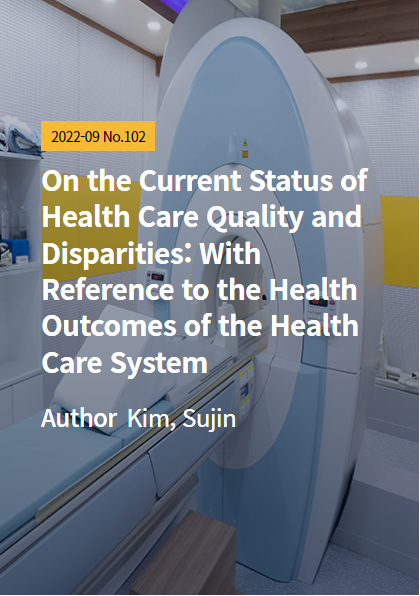Press Release
Enhancing Disease Management for Medical Benefit Recipients and Low-income People
- Date 2022-08-31
- Hits 1,441
KIHASA has published Health and Welfare Issue and Focus, No. 428, "Health Care Quality and Gaps: Focused on the Outcomes of the Health Care System." The lead researcher is Kim Su-Jin, a research fellow of the Center for Health Insurance Research, KIHASA.
This study was carried out to monitor, at the national level, the trends and gaps in health care quality in both chronic and acute care based on health care outcome indicators, and draw their policy implications.
Korea has stepped up efforts to improve health care access by, for example, enhancing national health insurance coverage, Kim said in the brief, adding, "It is critical to monitor health care quality and its gaps among different groups in the country to ensure that improvement in health care access leads to improvement in people's health levels."
Health care quality in both chronic and acute care are seen to have improved when measured with their health care outcomes, but the outcomes for medical benefit recipients were relatively unsatisfactory and those for low-income people were also unfavorable, though some details were different between the two groups. In particular, high levels of preventable hospitalization among medical benefit recipients and low-income people may point to a lack of quality in daily disease management; the low rate of survival without hospitalization after the occurrence of acute diseases such as stroke and heart failure may point to insufficient follow-up management after such occurrences. This requires measures that enhance primary health care access, daily health care management, and post-acute care for these vulnerable groups, Dr. Kim said.
Click Research in Brief 2022-14, "On the Current Status of Health Care Quality and Disparities: With Reference to the Health Outcomes of the Health Care System," a full translation of this issue of Health and Welfare Issue & Focus.


